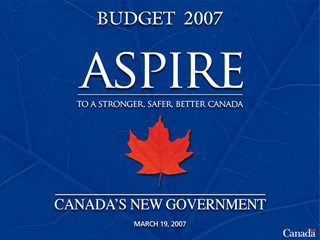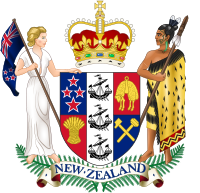Goods and Services Tax is a value-added tax or consumption tax for goods and services consumed in New Zealand.

Taxes in New Zealand are collected at a national level by the Inland Revenue Department (IRD) on behalf of the New Zealand Government. National taxes are levied on personal and business income, and on the supply of goods and services. Capital gains tax applies in limited situations, such as the sale of some rental properties within 10 years of purchase. Some "gains" such as profits on the sale of patent rights are deemed to be income – income tax does apply to property transactions in certain circumstances, particularly speculation. There are currently no land taxes, but local property taxes (rates) are managed and collected by local authorities. Some goods and services carry a specific tax, referred to as an excise or a duty, such as alcohol excise or gaming duty. These are collected by a range of government agencies such as the New Zealand Customs Service. There is no social security (payroll) tax.

The United States budget comprises the spending and revenues of the U.S. federal government. The budget is the financial representation of the priorities of the government, reflecting historical debates and competing economic philosophies. The government primarily spends on healthcare, retirement, and defense programs. The non-partisan Congressional Budget Office provides extensive analysis of the budget and its economic effects. CBO estimated in February 2024 that Federal debt held by the public is projected to rise from 99 percent of GDP in 2024 to 116 percent in 2034 and would continue to grow if current laws generally remained unchanged. Over that period, the growth of interest costs and mandatory spending outpaces the growth of revenues and the economy, driving up debt. Those factors persist beyond 2034, pushing federal debt higher still, to 172 percent of GDP in 2054.

The Canadian federal budget for the fiscal year 2006–07, was presented to the House of Commons of Canada by Finance Minister Jim Flaherty on May 2, 2006. Among the most notable elements of the federal budget were its reduction of the Goods and Services Tax by one percentage point, income tax cuts for middle-income earners, and $1,200-per-child childcare payment for Canadian parents.

The New Zealand budget for fiscal year 2006–2007 was presented to the New Zealand House of Representatives by Finance Minister Dr Michael Cullen on 18 May 2006.
Goods and Services Tax (GST) in Singapore is a value added tax (VAT) of 9% levied on import of goods, as well as most supplies of goods and services. Exemptions are given for the sales and leases of residential properties, importation and local supply of investment precious metals and most financial services. Export of goods and international services are zero-rated. GST is also absorbed by the government for public healthcare services, such as at public hospitals and polyclinics.

The Canadian federal budget for the 2007–08 fiscal year was presented to the House of Commons of Canada by Finance Minister Jim Flaherty. Flaherty presented the 2007 budget on March 19, 2007. No income tax or GST cuts were announced but there were tax credits for some families with children under 18. The federal budget included $14 billion in new spending and $5.7 billion in tax cuts. This was the second budget of the 39th Canadian Parliament.

The New Zealand budget for fiscal year 2012–2013 was presented to the New Zealand House of Representatives by Finance Minister Bill English on 24 May 2012.

The New Zealand budget for fiscal year 2013/14 was presented to the New Zealand House of Representatives by Finance Minister Bill English on 16 May 2013. This was the fifth budget English has presented as Minister of Finance.

The New Zealand budget for fiscal year 2014/15 was presented to the New Zealand House of Representatives by Finance Minister Bill English on 15 May 2014. This was the sixth budget English has presented as Minister of Finance.

The New Zealand budget for fiscal year 2011-2012 was presented to the New Zealand House of Representatives by Finance Minister Bill English on 19 May 2011.

The New Zealand budget for fiscal year 2009-2010 was presented to the New Zealand House of Representatives by Finance Minister Bill English on 28 May 2009.

The New Zealand budget for fiscal year 2007-2008 was presented to the New Zealand House of Representatives by Finance Minister Dr Michael Cullen on 17 May 2007.

The New Zealand budget for fiscal year 2008-2009 was presented to the New Zealand House of Representatives by Finance Minister Dr Michael Cullen on 22 May 2008.
The Malaysian federal budget for 2015 fiscal year was presented to the Dewan Rakyat by Prime Minister and Minister of Finance, Najib Razak on Friday, 10 October 2014.
The Malaysian federal budget for 2014 fiscal year was presented to the Dewan Rakyat by Prime Minister and Minister of Finance, Najib Razak on Friday, 25 October 2013.
In Malaysia, federal budgets are presented annually by the Government of Malaysia to identify proposed government revenues and spending and forecast economic conditions for the upcoming year, and its fiscal policy for the forward years. The federal budget includes the government's estimates of revenue and spending and may outline new policy initiatives. Federal budgets are usually released in October, before the start of the fiscal year. All of the Malaysian states also present budgets. Since state finances are dependent on money from the federal government, these budgets are usually released after the federal one.

A value-added tax is a consumption tax that is levied on the value added at each stage of a product's production and distribution. VAT is similar to, and is often compared with, a sales tax. VAT is an indirect tax, because the consumer who ultimately bears the burden of the tax is not the entity that pays it. Specific goods and services are typically exempted in various jurisdictions.

The New Zealand budget for fiscal year 2017/18 was presented to the New Zealand House of Representatives by Finance Minister Steven Joyce on 25 May 2017. It was the ninth budget of the Fifth National Government, and the first presented by Joyce in his role as Minister of Finance. This was the last budget presented by the Fifth National government which was defeated at the 2017 general election.
The 2018 Union Budget of India was the annual financial statement (AFS), demand for grants, appropriation bill and finance bill of India for the financial year 2018–19.






